Day #3 of shining a light on malnutrition in support of Malnutrition Week with Dietitian Connection. Today we’re sharing our top 4 tips on how people living with dysphagia at home or in healthcare organisations can prevent malnutrition together.
Since 2012, the team at Textured Concept Foods had created the highest quality texture modified foods for people living with dysphagia – at home or in healthcare organisations such as aged care facilities and hospitals.
We aim to transform people’s lives by transforming the quality of food they eat.
And that’s great news for people on texture modified diets, their carers and loved ones who can be assured that people at home or in healthcare organisations are consuming the daily nutrition they need to prevent malnutrition.
So what can we do to prevent malnutrition from occurring in the first place, especially when the statistics published on Dietitian Connection suggest that up to 40% of hospital patients 1 and up to 50% of nursing home residents 2 are thought to be malnourished?
Additionally, the findings for people who are on texture modified diets are more likely to become malnourished 3 (you can read more about that here).
Malnutrition is everybody’s business and we’re on a mission of empowering your diet of necessity – being on a texture modified diet may not be your choice, so let’s make it better together.
Here are the four tips we collectively can take to ensure people with dysphagia consume more energy and protein helping prevent malnutrition.
To start with, we need to have energy-dense food that looks and tastes great with high sensory appeal. Often taste and sensory fatigue settle in on puree diets especially when meals look and taste the same.
Whether you’re in an aged care facility or at home, it’s important to put in that extra effort and plate attractive meals for diners. Choose moulded products so people on texture modified diets can easily identify what’s on their plate so they’re happy to eat their meal and gain more energy and protein intake.
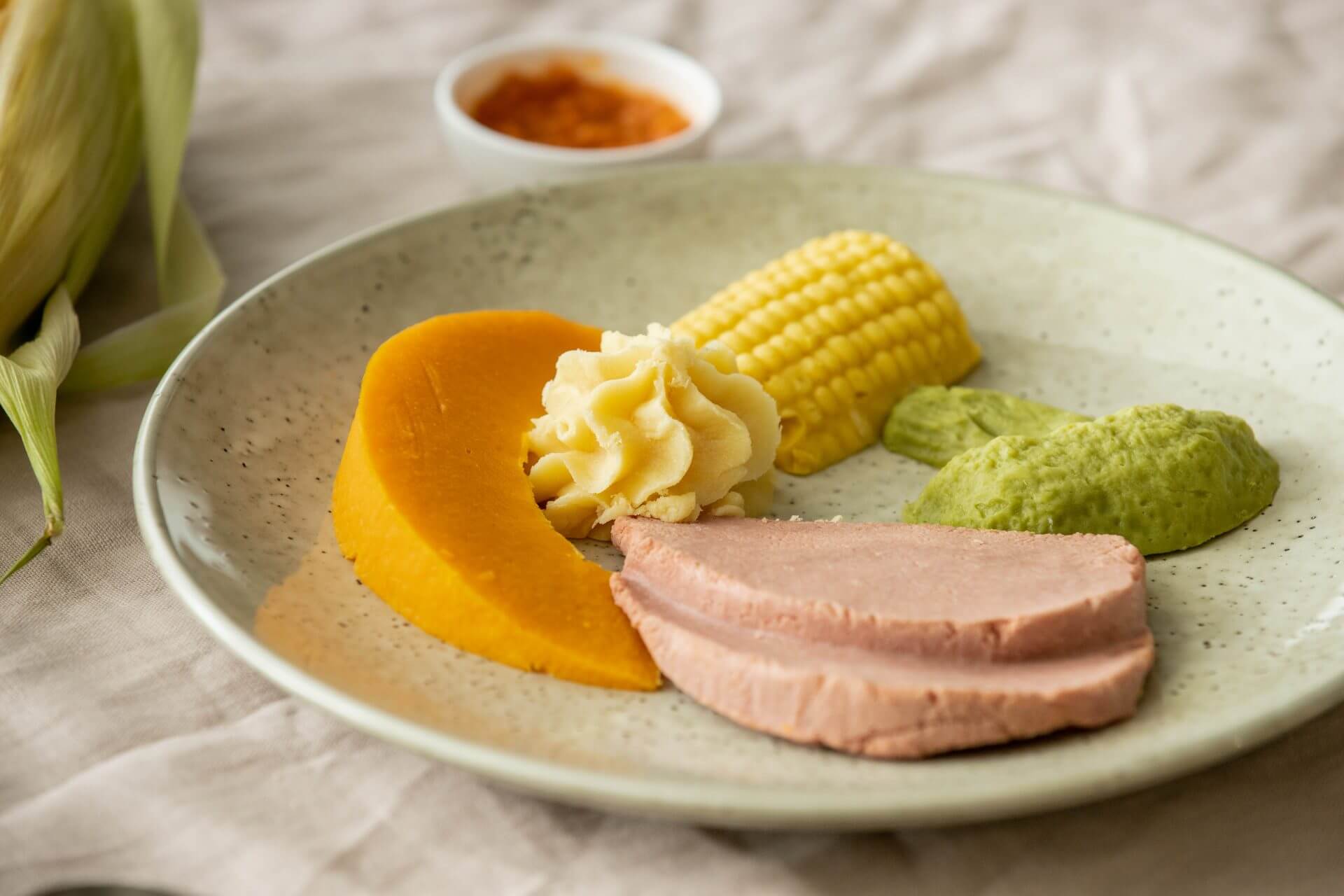
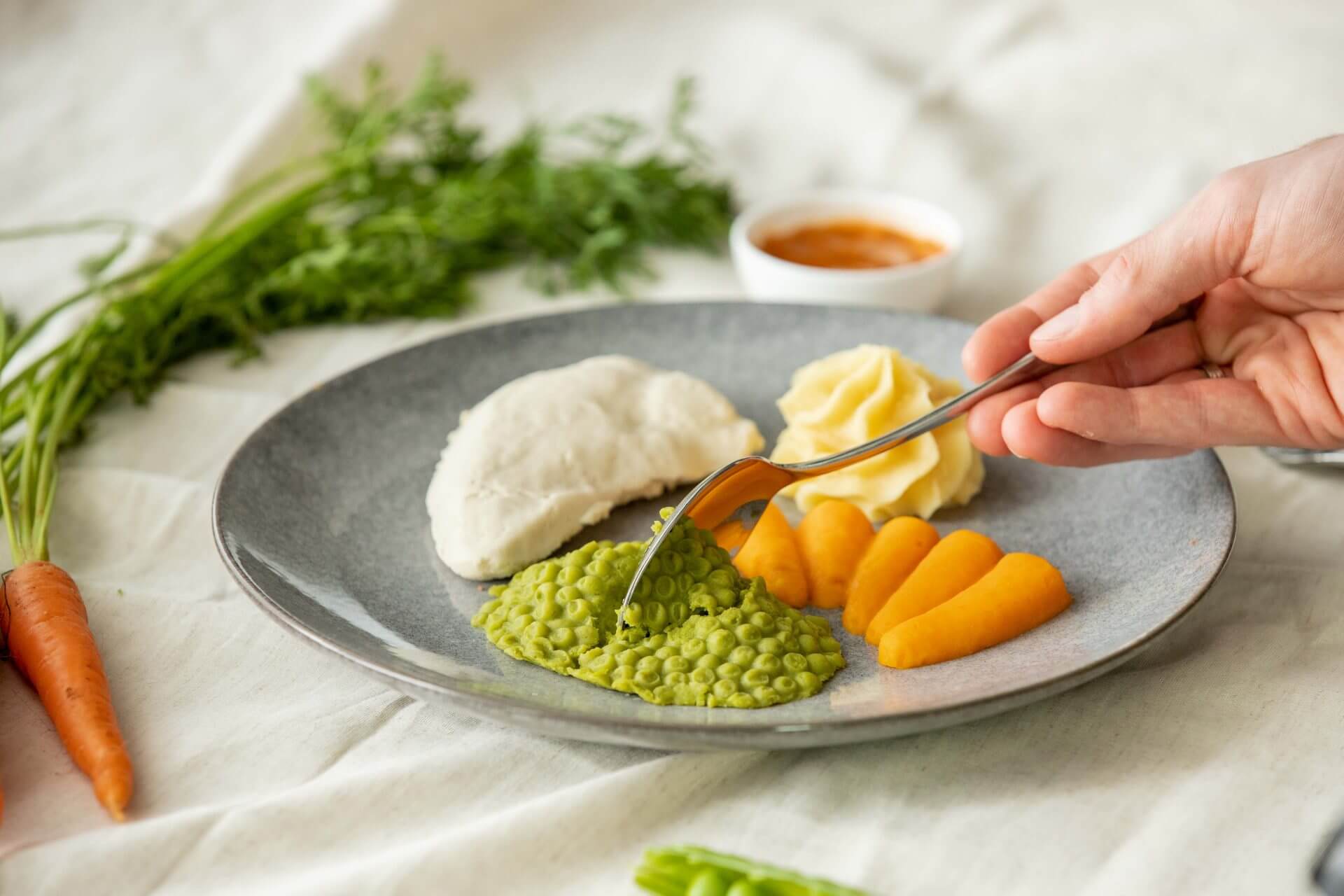
It’s well known that boredom and dissatisfaction with food often mean people don’t finish their meal. Remember energy and protein only count when they’re consumed.
Providing variety in a texture modified diet can be done. Offering diners more choice and flavour variety results in less mealtime boredom, greater nutrient intake and overall enjoyment.
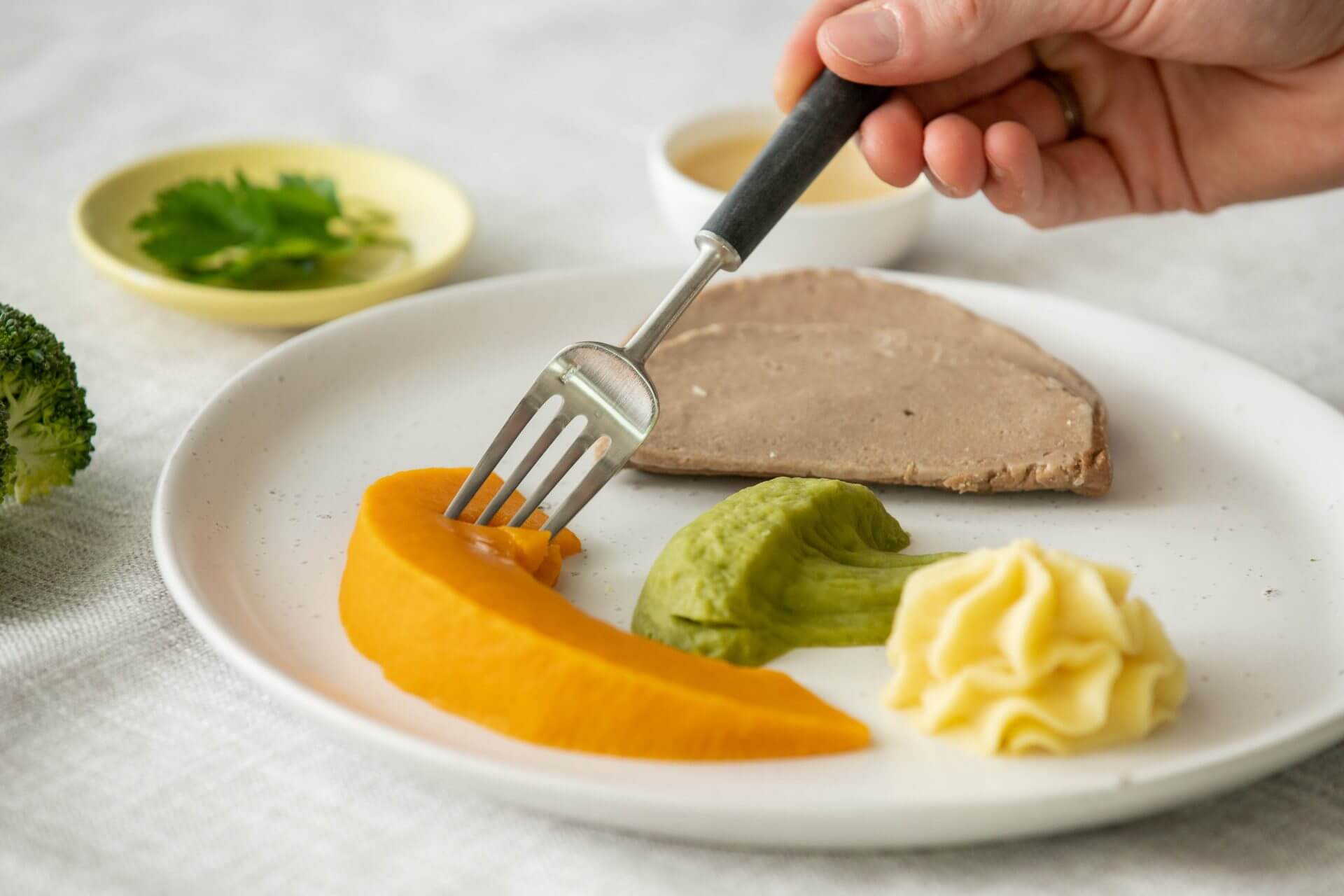
We use the term value-added to describe how our products have been made. Tailored to people with dysphagia in terms of texture and wholesome ingredients with portion-control for convenience at home or in commercial kitchens.
Choose texture modified products and meals that tick all the boxes – nutrition, safety, variety, and sensory appeal. Our value-added products and meals support people living with dysphagia at any stage of their life – they’re safe to chew and swallow and meet IDDSI Pureed Level 4 and IDDSI Mince & Moist Level 5.
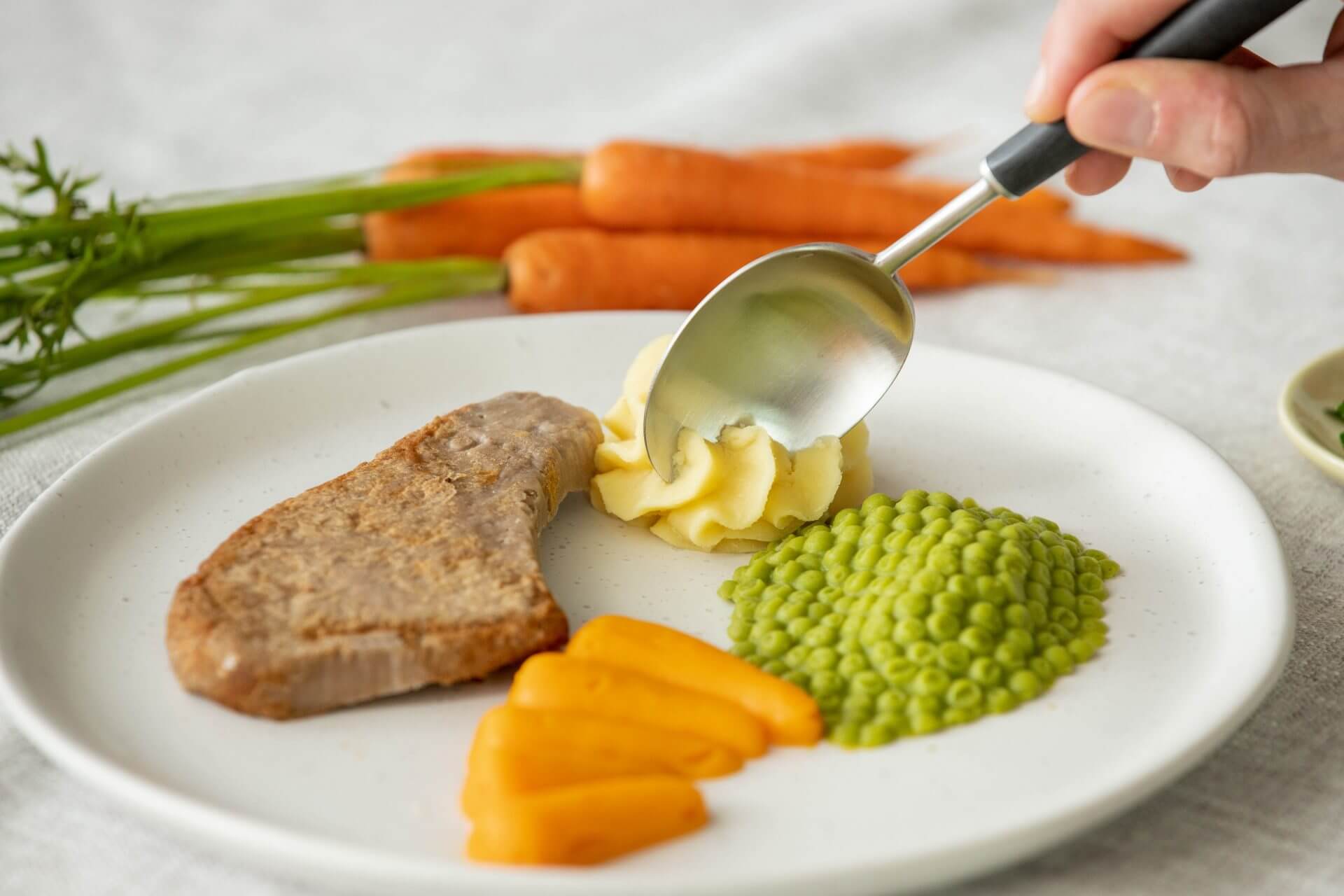
For people not on texture modified diets, we often take sensory appeal for granted. The saying is true – we eat with our eyes first. The ability to easily identify the food we’re eating means we’re more likely to enjoy eating what’s on our plate.
Plate presentation is important. The secret to producing highly sensory appealing texture modified products is by moulding every product so they look and taste like the real thing.
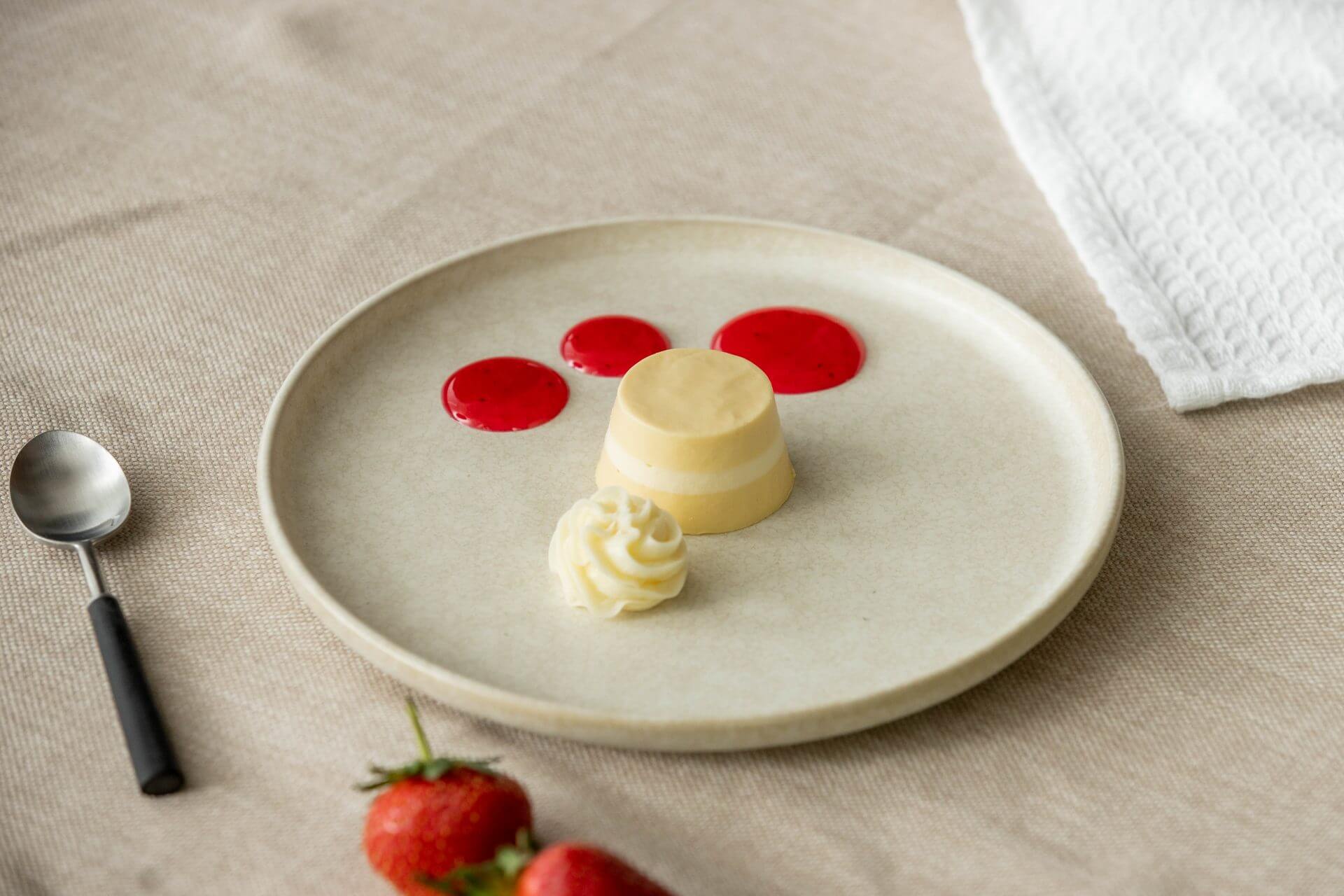
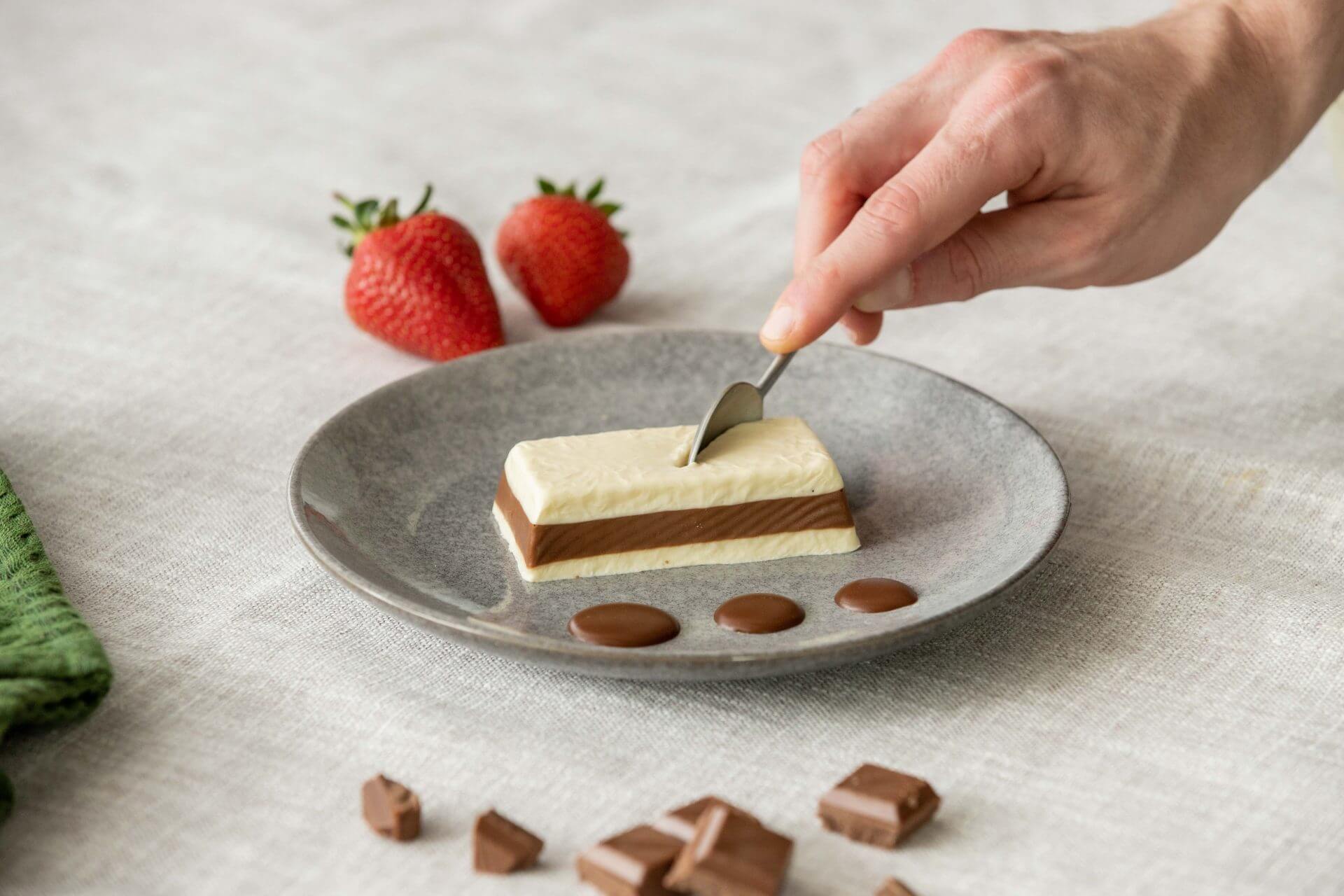
Head Chef Craig Stevens uses our texture modified products at Japara and says, “Since using TCF products, it has literally changed the lives of the residents on texture modified foods. Not only the taste, but the overall presentation of your food is amazing.”
Happy people are healthy people at any stage in their lives. We’re up for the challenge of preventing malnutrition.
Get in touch with our team today or head to our online shop and let’s prevent malnutrition together.
References: